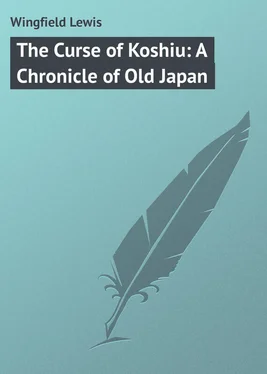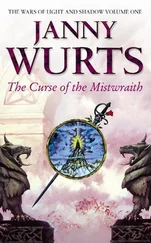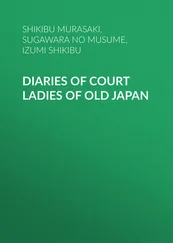Lewis Wingfield - The Curse of Koshiu - A Chronicle of Old Japan
Здесь есть возможность читать онлайн «Lewis Wingfield - The Curse of Koshiu - A Chronicle of Old Japan» — ознакомительный отрывок электронной книги совершенно бесплатно, а после прочтения отрывка купить полную версию. В некоторых случаях можно слушать аудио, скачать через торрент в формате fb2 и присутствует краткое содержание. Жанр: foreign_prose, на английском языке. Описание произведения, (предисловие) а так же отзывы посетителей доступны на портале библиотеки ЛибКат.
- Название:The Curse of Koshiu: A Chronicle of Old Japan
- Автор:
- Жанр:
- Год:неизвестен
- ISBN:нет данных
- Рейтинг книги:3 / 5. Голосов: 1
-
Избранное:Добавить в избранное
- Отзывы:
-
Ваша оценка:
- 60
- 1
- 2
- 3
- 4
- 5
The Curse of Koshiu: A Chronicle of Old Japan: краткое содержание, описание и аннотация
Предлагаем к чтению аннотацию, описание, краткое содержание или предисловие (зависит от того, что написал сам автор книги «The Curse of Koshiu: A Chronicle of Old Japan»). Если вы не нашли необходимую информацию о книге — напишите в комментариях, мы постараемся отыскать её.
The Curse of Koshiu: A Chronicle of Old Japan — читать онлайн ознакомительный отрывок
Ниже представлен текст книги, разбитый по страницам. Система сохранения места последней прочитанной страницы, позволяет с удобством читать онлайн бесплатно книгу «The Curse of Koshiu: A Chronicle of Old Japan», без необходимости каждый раз заново искать на чём Вы остановились. Поставьте закладку, и сможете в любой момент перейти на страницу, на которой закончили чтение.
Интервал:
Закладка:
This was whimsical-illogically planned-and Hojo a fool for his pains, When he contemplated the folly of the man he hated in his heart, the grim visage of the cautious Nara was puckered into unaccustomed smiles. The advice he would give in the future-so the wily lord decided-must depend on the attitude of his son-in-law, and be guided by the course of events for the benefit of the imperial prisoner. In his mind's eye (if Hojo could only have guessed it!) he beheld with secret exultation the brutish No-Kami sinking lower and lower by sure degrees into debauchery, until the moment should arrive when the ruler would become the ruled. And then-and then! Well, time must show what then. Sufficient for the day is its labour.
Just as a Nimrod of the chase may fly safely over tremendous obstacles and be undone by a ditch at last, so was it with old Hojo. He sallied forth one day to put down an insignificant riot in never tranquil Satsuma, and received there his quietus. As already related, the faithful Tomoyé died with him, and No-Kami-juvenile, inexperienced, and cruel-was called to reign in his stead. And now, no longer restrained in the smallest degree by respect for a severe mother or fear of a fiery father, the new despot, surrounded by parasites, gave free rein to all his vices.
The unaccustomed period of peace came to an abrupt conclusion. The young Mikado having been goaded one day to remonstrate with his new jailor, the latter raised his fan and slapped the august cheek. The Kugés flew to arms to avenge their outraged lord, but No-Kami, with the aureole of his father's prestige still about him, was too much for them. The nobles who dwelt in the palace bore but little of the stamp of warriors. The astute Nara, whilst hating the young man, saw that now, while the aureole remained unfaded, it was not yet the time to strike. He assumed therefore, with much parade of zeal, the rôle of mediator between his master and his son-in-law. At first in vain.
An unorganised band of patriots took the field, who were speedily routed and slain; and No-Kami, like the tyrant that he was, ungenerously pursued his advantage. Thanks to Nara's intervention, he refrained from deposing the Mikado; but he made up for this act of clemency by committing outrageous deeds. Banishment and confiscation were the order of the day. The estates of those who had dared to unsheath the katana were distributed among the minions of the despot. All over Japan, those who loved their country heard with groans of the annihilation of the loyalists, and the pitiful condition of the Emperors. There was a puppet Mikado at Kiŷoto, and a nominal Shogun at Kamakura, but they were both under the tutelage of Hojo.
No-Kami, as Nara hoped and expected, flushed with easy victory, and drunk with blood, resigned himself for a while to luxury, and neglected public business. A horde of rapacious bravos and licensed bandits sucked the lifeblood and paralysed the energies of the people. The weight of taxes, that ever crushes the spirit of the Asiatic peasant, grew heavier, day by day, until existence became intolerable. How was an end to be put to this nightmare? That was the question which all were fearfully whispering, and to which there seemed no solution.
No-Kami, if self-indulgent and ruthless, was no zany. He knew that his position was to be maintained by fear and a strong hand, and that enervation meant destruction. Bundles of bamboo, when bound together, will dam a stream, though each separate stem is but a feeble wand. The insurrection of effeminate Kugés had been precipitate and foolish. If the whole country were to rise like one man, he would, as he was aware, be swept like rice chaff into the sea. In the mutual jealousy of the Daimios lay his chief safeguard. While plunging each in separate discomfort, union at all costs must be prevented. Attempts at conspiracy among the nobles, or at combinations among the lower classes, must be frustrated, and to that end he gave strict orders to officials and tax-collectors to allow of no public meetings. The people were to pay what was demanded of them, humbly and dutifully, as best they could, but on no account were to be permitted to hold gatherings. Even the great festivals of the year were for a while to be discontinued.
Over and above these precautions, the tyrant surrounded his person with a picked body-guard of Samurai, or two-sword men; hedged his fortress with bristling defences; and recalled his brother, the brilliant Sampei, from his career of victory abroad.
Urged possibly by a spirit of contrariness, a contempt for the society of his prisoner and the Kugés-perhaps by a sense of freedom from personal danger there-the favourite abode of No-Kami was his castle of Tsu, four days' journey from the capital, over precipitous hills. Here he loved to dwell, surrounded by his brawling warriors; sojourning from time to time, when business called him to Kiŷoto, at a small but superb villa, called the Golden House, which stood secluded in a park on the outskirts of the sacred city.
The castle of Tsu was one of the strongest in Japan (the outline of its foundations still remains to attest to its vast area), and covered, within the square space of the outer moat, sufficient ground to accommodate an army. This outer moat, upon which many a shallop floated, was wide and deep and sluggish on three sides, masked by a luxuriant crop of lotos; while the fourth wall was washed by a rapidly-running river, the Iwatagawa, which a couple of miles away brawled into the sea. Out of the water rose a platform of great stones, with a fringe of gnarled and rusty pines, through which were visible battlements of earth crowned by a low parapet. At each corner was a huge four-storied building, fitted with four wide roofs of sculptured copper; the walls of whitewashed plaster within frameworks of unpainted wood. Inside this outer defence was a recreation and drill-ground of sufficient extent to allow of room for jousts and spectators, as well as trees and vegetable gardens, and a village of wooden huts for soldiery and camp followers. Dwellings of a better class were clustered like seashells about the second or inner moat, which enclosed a second wall.
Within the inner square was a space of considerable size, in the centre of which uprose the castle, a four-sided tower three hundred feet in height, tapering towards the top. By reason of its many roofs or verandahs of burnished and sculptured bronze, it seemed more like a cluster of many towers, the centre one the loftiest; and a picturesque object it was, for owing to the prevalence of earthquakes, all the walls above the foundation platform were of whitened mud and plaster, enclosed like the corner buildings within frames of timber; while the middle roof reared its head with overhanging eaves to a sharp point, crowned on the apex by a great fish, fashioned of pure gold.
This fortress was, barring miracle or treachery, justly reputed impregnable. Both moats were crossed by drawbridges, as an extra caution against surprise. The outer entrance was approached round a corner, so that the gate with its side postern was doubly commanded from above. Even if the outer wall were stormed, the inner one frowned on the intruder with manifold engines, while the ground about it could be rendered untenable by missiles from the summit of the tower.
A bowshot from the outer moat, westward from the river bank, the town of Tsu, with straggling suburbs, meandered, low and grey, like a long serpent. All Japanese towns are of one colour, walls and roofs alike, of wood unpainted and weatherworn, rendered a shade more silvery by clusters of pale lichen; but Tsu was more monotonously gloomy in aspect than most, by reason of damp and misery. The country close around, with the exception of two low hills, was flat and sedgy, broken by marshes and shallow rivulets. Away, hazy, melting into blue, could be discerned the encircling peaks of the range, beyond which is Kiŷoto. Grand mountains these, rugged and austere, with many a beetling crag. Mikuni Yama; Outake San; and away to the south-east Asama Yama, the majestic chief volcano of Japan.
Читать дальшеИнтервал:
Закладка:
Похожие книги на «The Curse of Koshiu: A Chronicle of Old Japan»
Представляем Вашему вниманию похожие книги на «The Curse of Koshiu: A Chronicle of Old Japan» списком для выбора. Мы отобрали схожую по названию и смыслу литературу в надежде предоставить читателям больше вариантов отыскать новые, интересные, ещё непрочитанные произведения.
Обсуждение, отзывы о книге «The Curse of Koshiu: A Chronicle of Old Japan» и просто собственные мнения читателей. Оставьте ваши комментарии, напишите, что Вы думаете о произведении, его смысле или главных героях. Укажите что конкретно понравилось, а что нет, и почему Вы так считаете.












